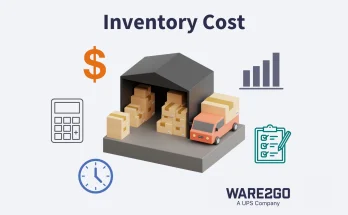The National Disability Insurance Scheme (NDIS) is an Australian government initiative that provides support and services for people with disabilities. NDIS aims to empower individuals and improve their quality of life by offering funding for disability-related services and support. Understanding the eligibility criteria, planning process, and the types of services provided by NDIS is key to making the most out of this system. This guide will walk you through the various aspects of navigating NDIS Disability Services, offering you valuable tips and tricks for a smooth journey.
The types of disability services provided by NDIS are extensive and cover a wide range of areas. These services encompass support in areas such as daily living skills, employment, education, health and wellbeing, community participation, and assistive technology. Understanding the breadth of services available will help you identify the specific supports that align with your needs and goals.
Preparing for the NDIS Journey
Preparing for the NDIS journey is a crucial step in ensuring a smooth experience. There are several key aspects to consider during this preparation phase.
A. Gathering Information
Before engaging with NDIS, it is essential to gather information about the scheme and the services it offers. Researching NDIS and its various aspects will provide you with valuable insights into how the system works and what you can expect during your journey. Understanding the NDIS planning process, including how the funding model operates, will help you make informed decisions.
Another important aspect of gathering information is exploring the available disability service providers. Researching and familiarising yourself with different providers will enable you to make choices that align with your preferences and needs. Consider factors such as the provider’s expertise, reputation, and the range of services they offer.
B. Assessing Needs and Goals
To navigate NDIS Disability Services effectively, it is crucial to identify your specific needs and goals. Reflecting on the areas in which you require support will help you articulate your requirements during the planning process effectively. Documenting relevant information and evidence related to your disability and its impact on your life will assist in substantiating your needs during your engagement with NDIS.
In some cases, seeking professional assessments may be necessary to provide an accurate understanding of your abilities and challenges. Professional assessments can provide valuable evidence to support your application and enable you to access the appropriate level of support under NDIS.
C. Budgeting and Funding
Understanding the NDIS funding model and how it applies to your specific needs is vital. NDIS operates on an individualised funding model, where the support you receive is tailored to your unique circumstances. This funding aims to cover the costs associated with the disability services and support you require.
During the preparation phase, it is essential to calculate the budget required for specific services you anticipate needing. Consider factors such as the frequency and duration of services, as well as any additional costs associated with specialised equipment or technology. Exploring different funding options available, such as government subsidies or community grants, can help you make the most of the resources available to you.
Engaging with NDIS
Engaging with NDIS Disability Services involves several key steps, starting from enrollment and planning to selecting disability service providers.
A. NDIS Enrollment and Planning
Enrolling in NDIS is the initial step in accessing disability services. To enrol, you need to contact the National Disability Insurance Agency (NDIA) and express your interest in becoming an NDIS participant. The NDIA will guide you through the enrollment process and provide you with the necessary forms and documentation to complete.
Once enrolled, you will have the opportunity to meet with an NDIS planner. The planning process involves discussing your needs, goals, and aspirations, and creating a personalised NDIS plan that outlines the supports and services you will receive.
B. Choosing Disability Service Providers
Selecting suitable disability service providers is a crucial aspect of navigating NDIS effectively. Service providers play an essential role in delivering the support outlined in your NDIS plan. When choosing a provider, consider their expertise and experience in delivering services that align with your specific needs. Seek recommendations from other NDIS participants or trusted sources, and conduct thorough research to ensure they can meet your expectations.
Making the Most of NDIS Disability Services
Once you have accessed NDIS Disability Services, there are several strategies you can employ to make the most out of the support available to you.
A. Accessing and Managing Services
Effectively accessing and managing your disability services is essential for maximising their benefits. This includes booking and scheduling appointments with your service providers, ensuring regular and consistent engagement. Understanding the terms and conditions outlined in service agreements or contracts will help you navigate the administrative aspects of receiving support.
Coordinating multiple services can be challenging, but organising and prioritising your support needs can help you manage your resources more efficiently. Consider making a calendar or schedule to keep track of your appointments and ensure effective utilisation of your allocated resources.
B. Utilising Support Networks and Resources
Engaging with local disability support groups or communities can provide you with valuable resources and a network of individuals who understand and share similar experiences. These support networks can offer guidance, emotional support, and information on services or resources that may benefit you.
Utilise online resources and tools available through NDIS to empower yourself with knowledge and information. The NDIS website offers a wealth of resources and information that can assist you in navigating the scheme effectively.
Seek assistance from advocacy organisations specialised in supporting individuals with disabilities. These organisations can provide guidance, advice, and advocacy support if you face challenges or encounter difficulties within the NDIS system.
Conclusion
In conclusion, navigating NDIS Disability Services effectively requires careful preparation, clear understanding, and effective engagement. By gathering information, assessing your needs and goals, and understanding the funding model, you can better position yourself for a smooth NDIS journey. Engaging with NDIS involves enrolling in the scheme, working with an NDIS planner to create a personalised plan, and selecting suitable disability service providers. Managing your services and utilising support networks and resources will enable you to make the most of these services.
Throughout your NDIS journey, it is essential to advocate for your needs and communicate effectively with NDIS staff and service providers. Regularly reviewing and updating your NDIS plan will ensure it continues to align with your evolving needs and goals.




